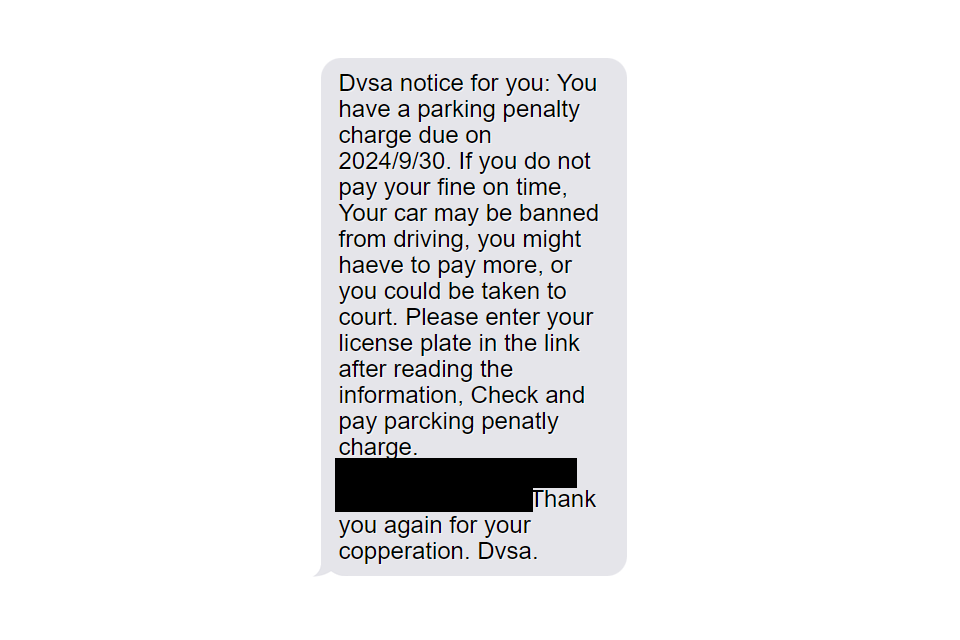
DVSA Issues Urgent Warning on Fake Parking Fine Text Scam
The Driver and Vehicle Standards Agency (DVSA) has issued an important warning about a new wave of scam text messages targeting drivers across the UK. These messages claim to be official parking penalty charge notices, urging recipients to pay a fine or face serious consequences, such as driving bans, increased fees, or even court action. What makes these messages particularly alarming is that they appear quite official, mimicking real government communications—except for a few telltale signs that drivers should be aware of.
The scam text typically contains multiple errors, including spelling mistakes, such as "Your car may be banned from driving" or "Thank you for your copperation." These simple yet critical errors can act as red flags for anyone receiving such a message. The scammers instruct recipients to enter their license plate details through a malicious link, which is a phishing attempt designed to steal personal information or even financial details.
Also Read:- T.I. and Tiny Secure $71 Million Victory in OMG Girlz Doll Trial
- Exploring The NYT ‘Strands’ Puzzle: Today's Hints and Answers for September 24
The DVSA, however, does not deal with parking fines. It’s essential for drivers to know that parking penalties are typically managed by local councils, not the DVSA, and are usually issued through a ticket on your windshield or a letter by post. If you receive a text like this, the best course of action is to report it to the National Cyber Security Centre or Action Fraud, the UK’s reporting centre for cybercrime. Do not click any links or provide any personal information.
For those who have unfortunately interacted with these scammers, quick action is crucial. Contact your bank immediately and report any potential losses or suspicious activity. The quicker you respond, the higher the chances of mitigating any harm. Reporting the scam to Action Fraud will also help authorities track these criminals and, ideally, prevent future frauds of this nature.
As scams become more sophisticated, it is vital to stay vigilant. Always scrutinize any unsolicited texts or emails asking for payments or personal information, especially when they appear to come from government bodies. Government agencies, such as the DVSA or your local council, will never ask for sensitive details via text message or email.
In today’s digital landscape, it’s easy for scammers to replicate official logos, language, and formatting. However, being cautious, recognizing red flags like spelling errors or unsolicited requests for personal information, and reporting suspicious messages can protect you from falling victim to these scams.
Read More:

0 Comments